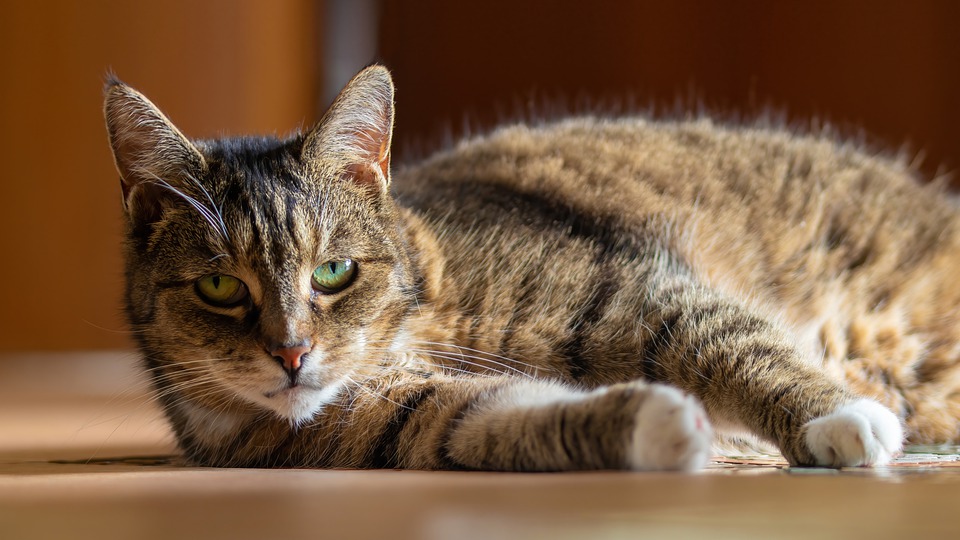Managing Nighttime Vocalizations in Cats: A Guide to Understanding and Addressing Nocturnal Noise
Introduction:
Cats are known for their independent and mysterious nature, but when it comes to nighttime vocalizations, they can sometimes disrupt our sleep and leave us wondering what’s causing all the noise. In this article, we will delve into the reasons behind these vocalizations, how to manage them effectively, and provide answers to some frequently asked questions.
Understanding Nocturnal Vocalizations:
1. Types of Nighttime Vocalizations:
a) Meowing: Cats may meow at night for various reasons, such as seeking attention, expressing hunger, or feeling anxious.
b) Yowling: This more intense and drawn-out vocalization is often associated with mating behavior, especially in unneutered cats.
c) Chattering: When your cat makes a chattering sound while staring out the window, it’s likely a response to excitement or frustration at seeing prey animals.
d) Crying or howling: These distressing vocalizations can occur due to pain, illness, or cognitive dysfunction in older cats.
2. Common Causes of Nighttime Vocalizations:
a) Hunger: Cats are crepuscular, meaning they are naturally more active during dawn and dusk and may become hungry during the night.
b) Attention-seeking: Cats may vocalize during the night to get your attention or engage in playtime.
c) Anxiety or stress: Changes in the household, such as a new pet, relocation, or disrupted routine, can trigger vocalizations as your cat expresses their unease.
d) Age-related issues: Older cats, especially those suffering from cognitive dysfunction, may vocalize more frequently at night due to confusion or disorientation.
Managing Nocturnal Vocalizations:
1. Establish a Routine:
a) Regular feeding schedule: Ensure your cat’s meals are given at consistent times to minimize hunger-related vocalizations.
b) Playtime and exercise: Engage your cat in interactive play sessions during the evening to tire them out before bedtime, reducing the likelihood of nighttime vocalizations.
c) Evening enrichment: Provide toys, scratching posts, and puzzle feeders to keep your cat mentally stimulated and entertained during the night.
2. Create a Calming Environment:
a) Comfortable sleeping area: Set up a cozy, quiet, and secluded space for your cat to sleep, away from any potential disturbances.
b) White noise or music: Playing soothing sounds or calming music can help drown out external noises and create a more peaceful environment.
c) Feliway diffuser: Consider using a Feliway diffuser, which releases synthetic pheromones that mimic a cat’s facial marking, promoting a sense of security and reducing anxiety.
3. Address Underlying Medical Issues:
a) Consult a veterinarian: If your cat’s nighttime vocalizations are sudden, excessive, or accompanied by other concerning symptoms, it’s essential to rule out any underlying medical conditions.
b) Pain management: Older cats experiencing pain may require medication or alternative therapies to alleviate discomfort and reduce vocalizations.
FAQs (Frequently Asked Questions):
Q1. Why does my cat start meowing loudly in the middle of the night?
A1. There can be various reasons, including hunger, attention-seeking, anxiety, or age-related issues. Ensuring a consistent routine and addressing any underlying causes can help manage this behavior.
Q2. How long should I play with my cat before bedtime?
A2. Each cat is different, but aim for at least 15-20 minutes of interactive play to tire them out. Observe your cat’s behavior to determine if more or less playtime is needed.
Q3. Can I give my cat melatonin to help with nighttime vocalizations?
A3. It’s crucial to consult with a veterinarian before administering any medication or supplements to your cat. They can guide you on appropriate options and dosages.
Q4. Are there any natural remedies for reducing nighttime vocalizations?
A4. Some cat owners find success with calming herbal supplements, such as chamomile or valerian. However, it’s best to consult with a veterinarian to ensure their safety and efficacy for your specific cat.
Q5. Will spaying/neutering my cat stop nighttime vocalizations?
A5. Spaying or neutering can significantly reduce vocalizations associated with mating behavior. However, it may not eliminate other types of vocalizations, so it’s essential to address any underlying causes as well.
Conclusion:
Understanding the reasons behind your cat’s nighttime vocalizations is the first step in managing and reducing this behavior. By establishing a routine, creating a calming environment, and addressing any underlying issues, you can help both you and your feline companion enjoy peaceful nights and restful sleep. Remember, patience and consistency are key when modifying your cat’s behavior, and consulting with a veterinarian is always recommended to ensure your cat’s well-being.








